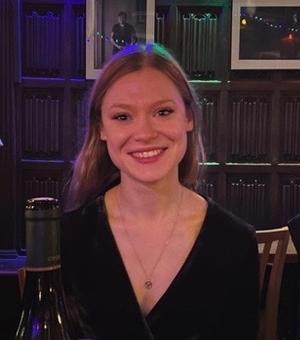Alice Spiers
Research
I am an historian of religion and gender in medieval Europe. I am particularly interested in how the way we use labels and categories in medieval religious history influences the way we understand and use the past. Concepts such as 'faith', 'law', 'religion', 'politics', 'heresy', and 'mystic' are both shared with and imposed on the past. They have been subject to layers of study which direct the way we view and use them in our own work. My focus is on reassessing factors and questions which have often been overlooked or under-emphasised in the study of individuals and texts traditionally considered to be the premise of 'religious' history.
Doctoral Thesis
Re-historicising religion: orientating mystics and their writing in the contextual milieu, c.1250-1350
My doctoral thesis takes three case studies in which individuals and their works which seem to typify their 'categories' are re-examined through the multiple lenses offered by re-contextualisation. This study takes Richard Rolle, his Latin work, Incendium Amoris, and its Middle English translation, The Fire of Love; Henry Suso, his Middle High German work, Das Buchlein der Ewigen Weisheit, and its Latin translation, Horologium Sapientiae, and Mechthild of Magdeburg, her Middle Low German work, Das Fließende Licht der Gottheit, and its Latin translation, Lux Divinitatis. Historiography of these individuals and texts has been dominated by their religious status and association with gendered spiritualities in ways which distort their historical reality. This study highlights the importance of (re)orientating our subjects in their geographical, political, and cultural spaces. This gives us a better sense of the communities in which they were embedded, whether through direct communication and interaction or participation in and response to shared socio-economic, cultural, and political milieus. It is particularly useful in tethering the religious to elements of lived experience outside of the spiritual. It encourages understandings of religious life as embedded in multiple overlapping social groups and communities. This gives a better conception of the medieval past as an integrated place rather than a series of interlocking categories. It helps us work towards a new understanding of 'religion' that builds on several decades of conceptual critique. Prioritising placing 'religious' individuals and texts back into their historical setting will help bring attention to political and other circumstantial questions which have previously been overlooked.
Supervisor: Dr Amanda Power
Teaching
Undergraduate History, Preliminary: Approaches to History
Undergraduate History, Final Honours School: Disciplines of History
Undergraduate History, Preliminary: European & World History II: Medieval Christendom and its Neighbours, 1000-1300
Undergraduate History, Visiting Students: Female Mysticism in the High Middle Ages, c.1200-1500




